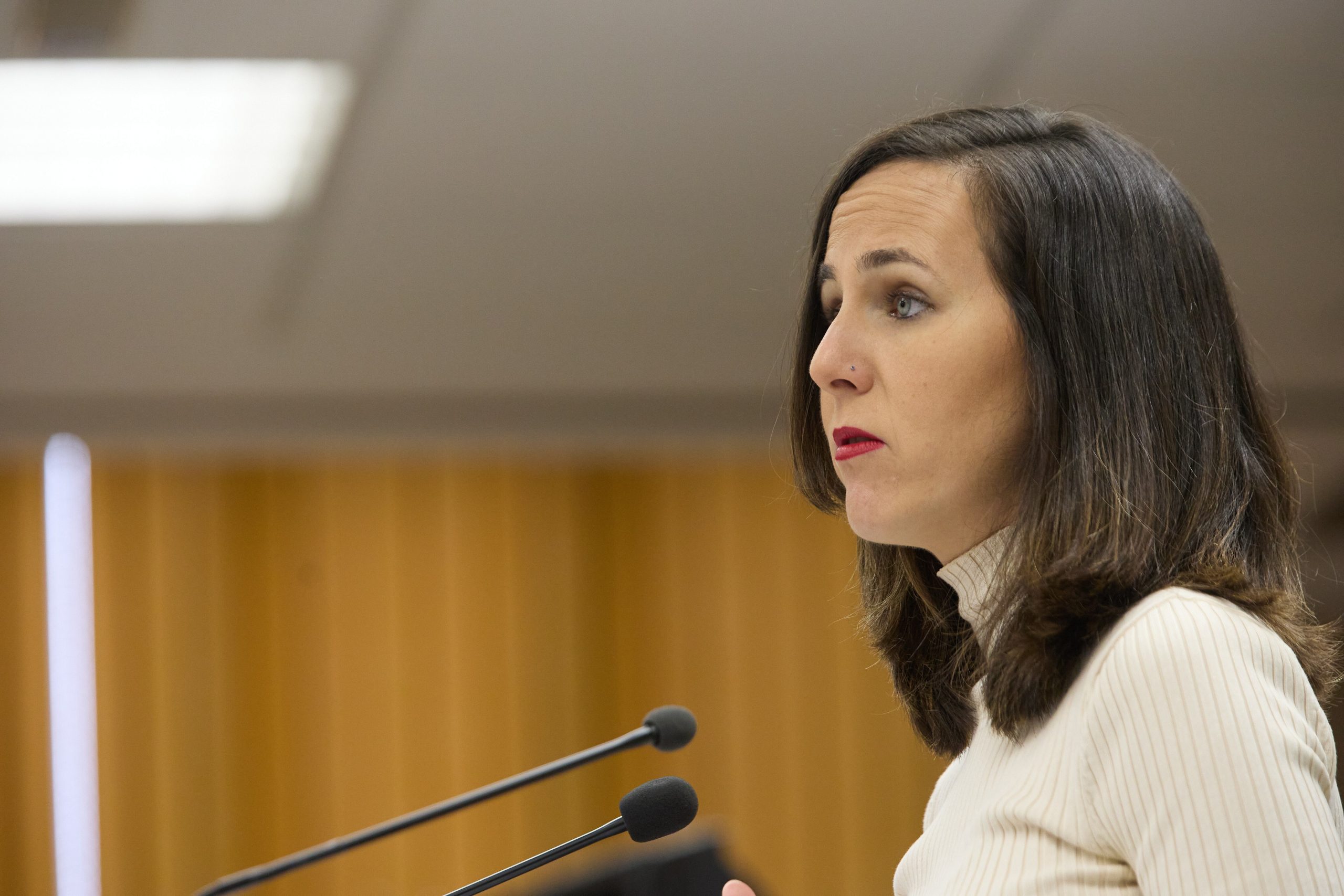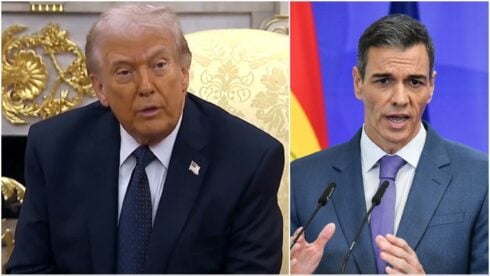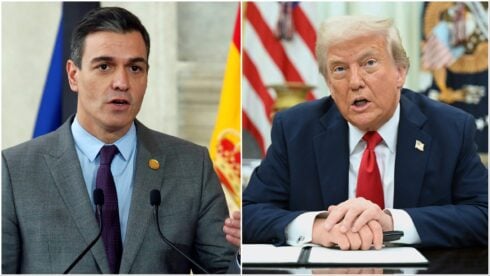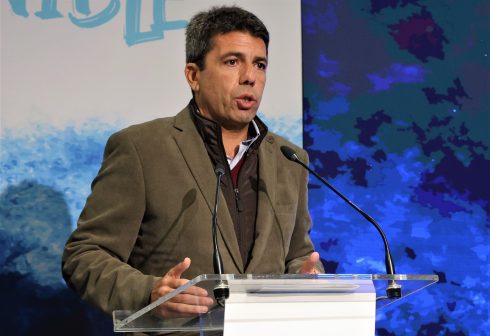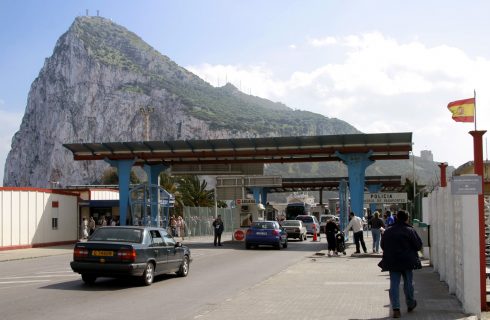THE FIVE deputies in Spain’s Congress who belong to the Podemos party have decided to break away from the leftist alliance Sumar, which is the junior partner in the newly formed coalition government of Socialist Party Prime Minister Pedro Sanchez.
The move may further complicate Sanchez’s ability to pass legislation, given that he is governing in a minority and will now have to secure the votes of Podemos as well as Sumar in Congress in order to get bills approved. It may also mean his new term in office is effectively over before it even gets properly started.
In the 350-seat chamber, 176 votes are needed for an absolute majority. Prior to today, the Socialists counted on 121 seats, with Sumar having 31, for a total of 152. With the exit of Podemos, Sumar will count on 26 seats, for a coalition total of 147.
Going forward, Sanchez will now have to find the support of Sumar, Podemos, as well as smaller, regional parties such as the Catalan separatist Junts group, and the Basque Nationalist Party (PNV), among others, in order to get things done.
Podemos will now form part of the so called ‘Mixed Group’ of smaller parties in Congress.
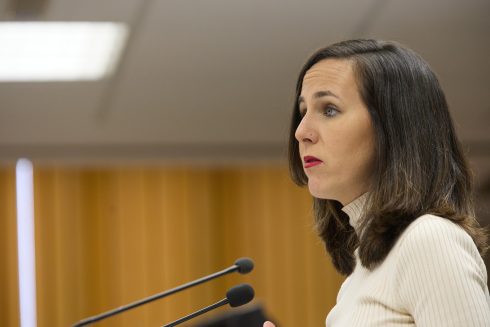
The rupture comes after a series of tensions between Podemos and the leadership of Sumar, and barely a few weeks after Sanchez was voted back into office by deputies in Congress at an investiture vote.
“I am announcing that from now on the Podemos deputies will move to the Mixed Group to guarantee our ability to do politics in Congress and to continue to guarantee there are brave transformations,” said party spokesperson Javier Sanchez Serna in Congress today.
He added that the rules ‘were not the same for everyone’ within Sumar.
The tipping point for Podemos appears to have been the refusal by Sumar – which is led by one of Spain’s deputy prime ministers Yolanda Diaz – to allow the party to participate in a press conference held by Foreign Minister Jose Manuel Albares to discuss the government’s position on the conflict between Israel and Hamas.
Podemos has been scathing in its criticism of Israeli tactics since the Hamas terrorist attacks in early October, as well as of Prime Minister Benjamin Netanyahu, calling him a ‘war criminal’.
Rumours had been swirling in Spain’s political scene that such a rupture between Sumar and Podemos was likely, after party leader and former Social Affairs Minister Ione Belarra and her colleague, former Equality Minister Irene Montero, were not assigned any Cabinet positions by Sanchez when he formed his government in November.
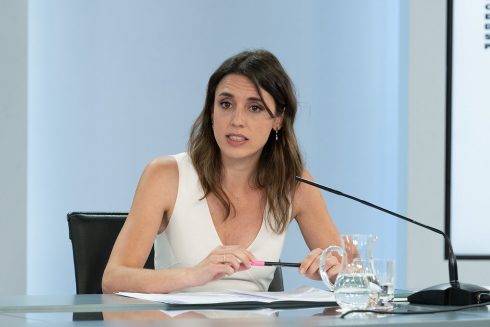
What’s more, Podemos was at the centre of a series of controversies during Sanchez’s previous term in office, when the group formed part of the Unidas Podemos bloc and served as the Socialists’ junior coalition partner.
These included the ‘only yes means yes’ law, which was drafted by the Equality Ministry and was aimed at putting consent at the heart of sexual abuse legislation. But it had the inadvertent effect of reducing the sentences of some convicted sex offenders, and even securing them early release in some cases.
Under mounting political pressure, the Socialists opted to amend the law to close this loophole, despite the opposition of Podemos.
The news of the rupture between Sumar and Podemos was also announced today on CanalRed, a media outlet launched by Pablo Iglesias, himself one of the co-founders of Podemos and the former deputy prime minister in the previous administration of Pedro Sanchez.
Iglesias, who is also the partner of Podemos politician Irene Montero, has since retired from politics to dedicate his time to his media projects.
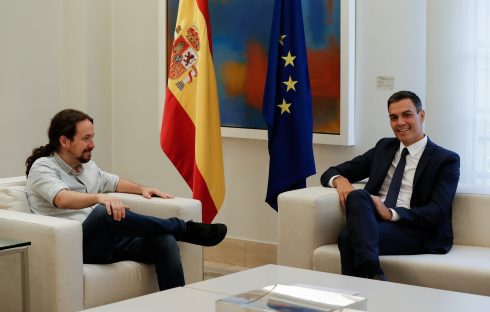
Founded in 2014, Podemos was born from the anti-austerity movement and protests in Spain against inequalities in the country and corruption among the political class. At the 2015 general elections, it became the country’s third-biggest political force, after the conservative Popular Party and the Socialists.
It has, however, progressively lost support at the polls, something that was particularly clear at the local and regional elections held in May of this year. The bad results for leftist parties prompted Pedro Sanchez to call a snap election.
After fraught negotiations that went right down to the wire, Podemos agreed to join Sumar ahead of that general election, which was held on July 23. While the Popular Party won the most votes, it was unable to secure a majority, paving the way for Pedro Sanchez to form his government thanks to the support of a host of different parties.
Read more:
- Spain’s Pedro Sanchez has ‘frank doubts’ that Israel’s actions in Gaza are in line with international humanitarian laws
- King Felipe of Spain defends his country’s constitution as he opens Congress after months of political deadlock
- Partido Popular leader Alberto Feijoo calls for fresh protests against Spain’s new government
Click here to read more News from The Olive Press.

